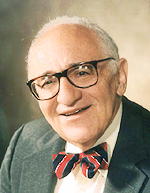Murray Rothbard has struck again! Through reading his fascinating, albeit frustrating at times, history of America Conceived in Liberty, I stumbled across some shocking stories. Rothbard is the type of author that even when I disagree with him, I find myself laughing and thinking. I enjoy authors who make their readers think because so few do today. Since recorded history, governments have violated people’s inherent rights, but how these poor precedents proceed in perpetuity is astonishing. Has anyone studied the history of the English postal system? I certainly hadn’t! Let me quote from the irrepressible sacred cow buster Murray Rothbard:
 Postal service began in the early American colonies as freely competitive private enterprises of varying forms and types. Letters between neighboring villages were sent by special messengers, who were often Indians. For longer journeys, letters were carried by travelers or regular merchants. Letters to or from England were carried by private ship captains, who often hung a bag in the local coffeehouse to receive letters for shipment. The price was generally a penny for a single letter and two pence for a double letter or parcel.
Postal service began in the early American colonies as freely competitive private enterprises of varying forms and types. Letters between neighboring villages were sent by special messengers, who were often Indians. For longer journeys, letters were carried by travelers or regular merchants. Letters to or from England were carried by private ship captains, who often hung a bag in the local coffeehouse to receive letters for shipment. The price was generally a penny for a single letter and two pence for a double letter or parcel.
Unfortunately, English precedent held out little hope for the unhampered development of a freely competitive postal service. In 1591 the Crown had issued a proclamation granting itself the monopoly of all foreign mail, and in 1609 the Crown’s proclamation extended its own monopoly to all mail foreign or domestic. The purpose of this postal monopoly was quite simple: to enable governmental officials to read the letters of private citizens in order to discover and suppress “treason” and “sedition.”
Thus, when the Privy Council decided in 1627 to allow merchants to operate an independent foreign post, the king’s principal secretary of state wrote sternly: “Your lordship best knoweth what account we shall be able to give in our places of that which passeth by letters in or out of the land, if every man may convey letters under the course of merchants to whom and what place he pleaseth…how unfit a time this is to give liberty to every man to write and send what he list….” And in 1657 when the Commonwealth Parliament continued the English governmental postal monopoly, the preamble of the act stated a major objective: “to discover and prevent many dangerous and bigoted designs, which have been and are daily contrived against the peace and welfare of this Commonwealth, the intelligence whereof cannot well be communicated, but by letter of script.”
The first government meddling in the postal service in America came as early as 1639 in Massachusetts. At that time the government appointed Richard Fairbanks to be a receiver and deliverer of foreign letters for the price of one penny; no monopoly privilege was granted, and no one was prevented from using other postal intermediaries. The Dutch government in New Netherland went far beyond this when in 1657 it awarded itself a compulsory monopoly of receipt of foreign mail; anyone presuming to board a vessel first to obtain his own mail was fined thirty guilders. Ship captains were fined heavily for carrying letters for anyone except the government postal monopolist.
In other words, America’s “snail mail” postal monopoly has nothing to do with efficiency (I guess we all knew that :)); it has nothing to do with the poor economics of this generation; and it has everything to do with the State’s desire to spy on people’s thoughts, plans, and actions. This, mind you, from our English forefathers, whose ideas of liberty were modeled in the creation of America. The postal system is one area where we shouldn’t have applied English principles. If government has the right to spy at will, where does this right end? If someone disagrees with the ruling power, does that person have the right to open letters, emails, tap phones, etc? England’s unethical precedent is still affecting America’s postal system to this day.
I love history, but this isn’t the type of lessons I learned in school and neither will you. Since Big Government funds the schools, no one should be shocked about this. Sadly, with today’s further government interventions like the Patriot Act, to name one among many, civil liberties are quickly becoming a thing of the past. Harry Truman, an avid reader, once paraphrased Solomon when he said, “There is nothing new under the sun, only the history you don’t know.” We must educate ourselves on real history and not the government fed history from our schools and other government-funded institutions.
The battles fought over freedom today may be different in detail but astonishingly similar in principle. Yes, America was conceived in liberty; I pray it doesn’t die in tyranny.
Sincerely,







